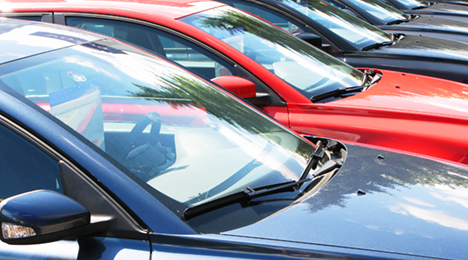ISLAMABAD: In a move to overhaul Pakistan’s auto sector, the government has enforced internationally recognized safety, quality, and environmental standards for all imported and locally manufactured vehicles. The move, announced by the Ministry of Industries and Production through two separate notifications, brings Pakistan closer to compliance with UNECE’s WP-29 Regulations, a global benchmark followed in more than 60 countries.
According to the notifications issued by the Engineering Development Board (EDB), the new framework makes it mandatory for all imported vehicles, whether brand new or used, as well as all locally assembled vehicles, to conform to dozens of WP-29 standards covering road safety, passenger protection, emissions, and environmental compliance.
For imported vehicles, the decision was ratified by the Federal Cabinet last week on the recommendation of the Economic Coordination Committee (ECC). Importers will now be required to comply with a wide range of UNECE standards governing braking systems, safety belts, airbags, child restraint systems, head restraints, crash protection (frontal, side, and pole-side impact), lighting and signaling devices, emission limits, tyre safety, vehicle alarms, and even requirements for electric and hydrogen fuel cell vehicles.
Commercial importers of used vehicles will also face stricter rules. Only companies incorporated under the Companies Act 2017 with adequate capital and proper after-sales service networks will be allowed to import used vehicles. Each imported unit must carry pre-shipment inspection certification from accredited bodies such as JAAI (Japan) or KTL (Korea), confirming that the vehicle has not been accidental, odometer tampered, or structurally damaged, and that it is roadworthy with required airbags intact. After arrival, vehicles will also be subject to post-shipment inspection at designated facilities in Pakistan.
For locally assembled/manufactured vehicles, the government has mandated that automakers adopt the same safety and quality standards under WP-29. These include regulations for braking, safety belts, airbags, glazing, steering, vehicle structure strength, tyres, emission controls, hydrogen and electric vehicle safety, and noise standards.
All assemblers are required to comply with the standards from June 30, 2026, failing which the EDB will be empowered to forfeit their manufacturing certificates and import authorizations. However, in cases where adoption requires large capital investment or new technology, manufacturers may apply for limited extensions of up to two years from EDB, and an additional one year from the Ministry of Industries and Production.
Officials say this move is aimed at ending the decades-long double standard where imported cars often had higher safety features compared to locally assembled models, leaving Pakistani consumers exposed to risks. The alignment with global standards will not only improve passenger safety but also enhance Pakistan’s credibility in international trade, enabling local manufacturers to eventually export vehicles to markets that demand WP-29 compliance.
Industry insiders still doubt the effective mechanism of adoption of WP-29 standards which has been a longstanding demand of consumer groups.
A senior member of Pakistan Association of Automotive Parts & Accessories Manufacturers (PAAPAM) Amir Allawala comments that to set up quality and safety standards is a positive step. Almost all cars and parts made in Pakistan are already complying to these standards as they are same as Japanese, Korean or Chinese standards that are being followed by assemblers and their parts manufacturers, worldwide
However, if the government does not set up testing labs in the country, the cost of sending these parts to foreign accredited labs and certification fee would result in increasing production cost and outflow of foreign exchange. The auto industry needs testing labs, dyes & molds manufacturing and basic raw material industry in the country. All of these are only possible with enabling and encouraging policy of the government
PSQCA sidelined in vehicle safety regime
Interestingly, through the fresh move the federal government has empowered the EDB to oversee safety and quality standards for locally manufactured and imported vehicles, while bypassing the Pakistan Standards and Quality Control Authority (PSQCA), the country’s legally mandated national standards body.
PSQCA, an autonomous authority under the Ministry of Science and Technology, was established through an Act of Parliament and is recognized internationally as Pakistan’s sole national standards body. It is a member of global organizations such as the ISO, paying annual fees to maintain Pakistan’s representation. Over the years, PSQCA has developed standards for various automotive safety parts and approved agreements with international laboratories to facilitate vehicle inspections.
Despite this, the Ministry of Industries and Production, through the proposed Motor Vehicles Industry Development Act, 2025, has assigned the mandate of setting and enforcing vehicle standards to the EDB, a policy facilitation agency with no regulatory history or technical infrastructure for conformity assessment.
Officials and experts warn that this creates a serious institutional conflict. “The mandate for standardization, inspections, and conformity assessments is clearly assigned to PSQCA under the law. Any attempt to bypass that role is administratively flawed and legally unsound,” said an official from the Ministry of Science and Technology.
Industry insiders argue the shift reflects the growing influence of the powerful automobile lobby, which has historically benefited from EDB’s softer stance. Despite longstanding criticism of high prices, low localization, and poor safety features in Pakistan’s vehicles, EDB has often been accused of shielding local assemblers from scrutiny. By contrast, PSQCA’s efforts to introduce type-approval procedures and sign recognition agreements with accredited global labs are viewed as steps toward aligning Pakistan’s auto sector with international benchmarks.
Legal experts also caution that Pakistan is a signatory to the WTO’s Technical Barriers to Trade (TBT) Agreement, which discourages overlapping mandates for standard-setting. International practice recognizes only one standards authority per country, further reinforcing PSQCA’s primacy. “Creating a parallel mandate for EDB not only risks legal challenges but also undermines Pakistan’s international credibility,” one legal analyst noted.
As the draft law moves toward parliamentary approval, observers fear that unless amended to reaffirm PSQCA’s central role, the new regime could ultimately serve the interests of manufacturers while eroding independent oversight and weakening consumer protections.
Discover more from Brackly News
Subscribe to get the latest posts sent to your email.



